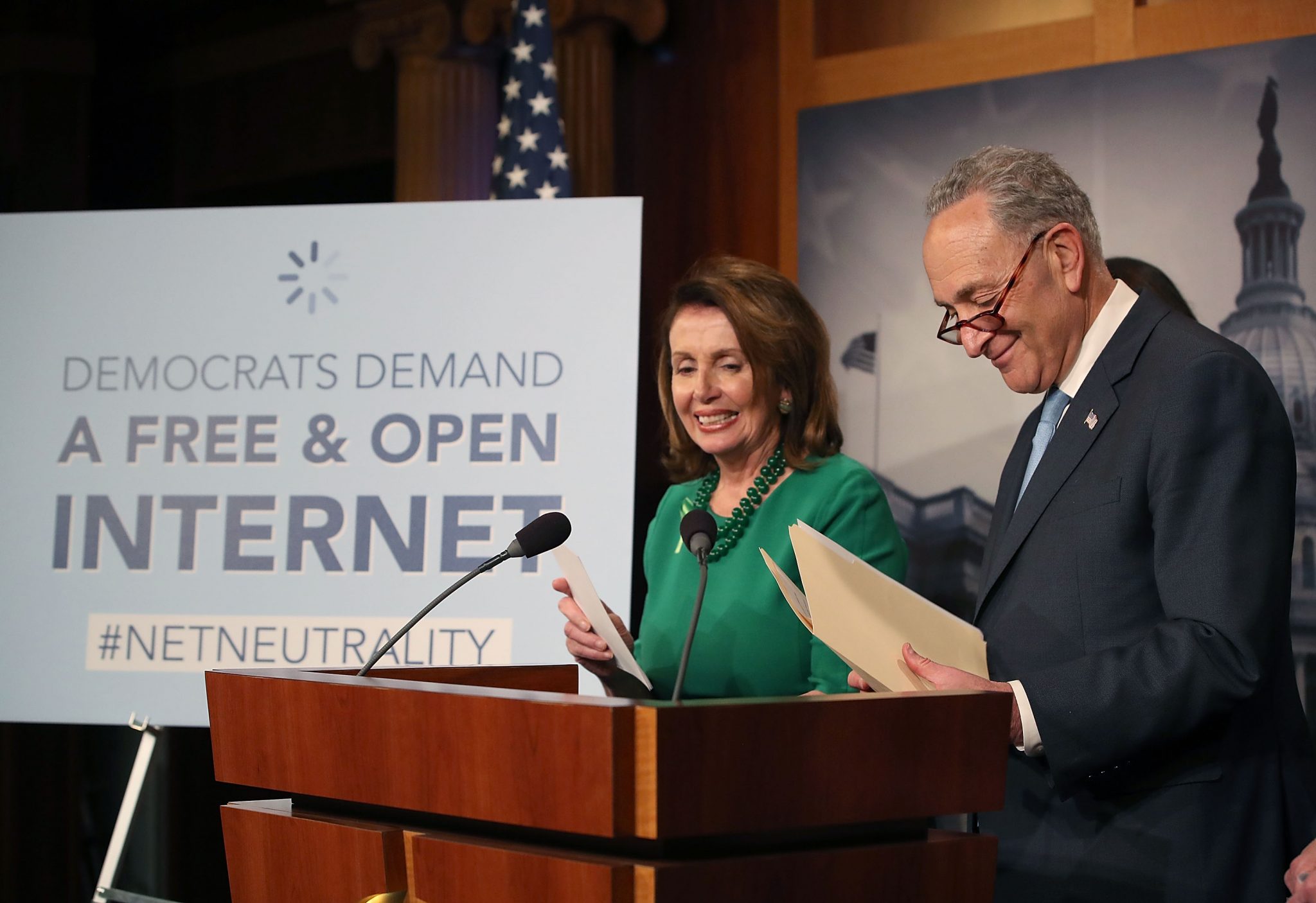On Wednesday, Democrats in the U.S. House of Representatives passed legislation that would effectively entirely reinstate the 2015 Open Internet Order. These rules are crucial because they ensured net neutrality was the law of the land. The bill was passed with a 232-190 vote. Only one Republican voted in favor of the legislation.
Named Save the Internet Act, it was introduced by Congressman Michael Doyle Jr. last month. The bill would put consumer protections into that existed prior to the repeal by Federal Communications Commission.
The bill prohibits broadband-access companies such as AT&T and Comcast from slowing or blocking internet content as well as not allowing the use of “fast lanes” to select apps and services. FCC’s authority to govern internet providers under Title II of the Communications Act was also reinstated. GOP is heavily opposed to the reclassification under Title II of the Communications Act and Democrats argue that without Title II-based rules, there was no way to ensure rules would be followed.
“This legislation not only protects consumers from large corporations, but it also strengthens our economy by promoting innovation and small businesses,” said Doyle. “Net neutrality ensures that any business, no matter how small, gets the same internet at the same speeds as giant corporate interests.”
Net Neutrality Opposition
Republicans have been fierce opponents of this bill. For example, Republican Congressman Greg Walden has casted net neutrality as a “heavy-handed” approach for regulation and says it’s a “government takeover of the internet.” On the other hand, Internet Service Providers are not “the internet” themselves, and the bill grants regulators no authority to control the content users access and see.
Opponents of net neutrality have stated that net neutrality would lay the groundwork for future taxation of broadband access, but it’s false information and not true. The truth is that this would be illegal under the Internet Tax Freedom Act of 1998, which prohibits federal, state, and local governments from taxing internet access.
“When the agency rolled back net neutrality protections, it gave broadband providers the power to block websites, throttle services, and censor online content,” said Pai’s Democratic colleague, FCC Commissioner Jessica Rosenworcel. “This decision put the FCC on the wrong side of history, the wrong side of the law, and the wrong side of the American public.”
The Future of Net Neutrality
The future of Save the Internet Act remains unclear. With Senate control under Republicans, everything is in the air. Senate Majority Leader Mitch McConnell has said the bill would be “dead on arrival in the Senate.” There are a few Republicans that support 2015 rules, such as Susan Collins of Main, John Kennedy of Louisiana, and Lisa Murkowski of Alaska.
“Americans of all political stripes support putting net neutrality rules back on the books, because when you pay your monthly broadband bill, you should be able access all the content on the internet at the same speed without interference or throttling by your broadband provider,” said Senator Edward Markey, who’s introduced a companion bill in the upper chamber.
According to a 2018 survey by the Program of Public Consultation at the University of Maryland, around 86 percent of Americans are in opposition of Trump administration’s decision to dismantle Obama-era rules, including 82 percent of Republicans.





